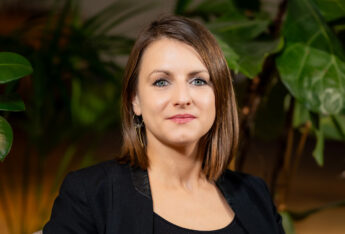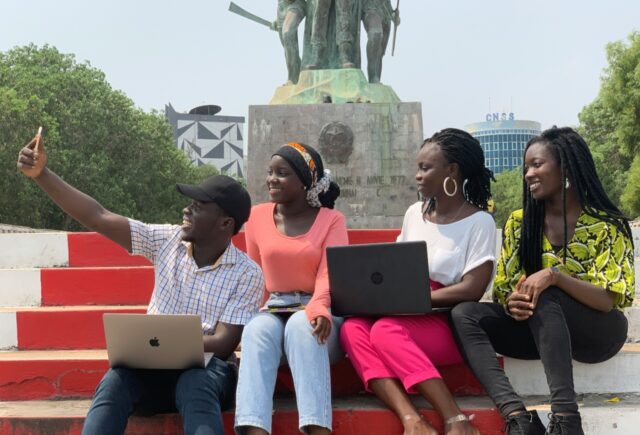The report details the experiences of 19 national partner countries and regions which have implemented or are designing wholesale impact investment vehicles to build their respective markets.

Eleven established impact wholesalers and fund of funds, managing an aggregated $3.1bn (€2.8bn), have been brought to market by GSG Impact and its affiliated national partner countries and regions in Africa, Europe, Asia and Latin America, with a further eight in development.
This is a 280% increase on the five in operation or design in 2019, signalling a marked increase in the pace of development and deployment, according to the latest report from GSG Impact, which details the experiences of 19 GSG Impact National Partner countries and regions.
Speaking to Impact Investor, Krisztina Tora, chief market development officer for GSG Impact, explained that in both developed and emerging markets, many social enterprises that started well very quickly found their growth “blocked” by a lack of access to the right type of financing at the right time. She said impact investment wholesalers played an important role in helping to overcome these challenges.
“In developing markets the situation is particularly challenging given that only about 20% of SMEs are being served by banks. There is also a lack of private equity and venture capital, or where it does exist, it doesn’t tend to be directed at impact-led businesses,” said Tora.
She stressed the importance of creating large pools of capital such as fund of funds or other models to strengthen the existing VC or PE ecosystem or help create new vehicles with a mission to invest into impact businesses.
“This guide is part of that mission to help to grow that section of the market, providing a comprehensive approach to developing an impact investment wholesaler from step zero to launch and all the steps in between.”
Defining impact investment wholesalers
GSG Impact’s definition of impact investment wholesalers is based on four key characteristics. These include the ability to invest by providing repayable finance to funds or other financial intermediaries and the ability to attract catalytic and commercial investments by designing instruments and investing in ways designed to draw in capital from a range of capital providers with different return expectations. It also includes a focus on impact, with the aim of advancing market-led solutions to social and environmental challenges that generate measurable and positive impact. Included in the latter is helping to deliver to the market impact measurement and management data at the wholesale, intermediary, and, where possible, enterprise levels.
The fourth characteristic is seeking to develop the impact investment market, including by methods that may lie outside investment such as strengthening enterprise capacity, running educational and investment readiness programmes, encouraging policy change, building new intermediaries, and promoting market transparency and integrity.
“Around 2017 we coined the term impact wholesalers. At that time, there were only four; in the UK, EU, Japan and Portugal. We saw these four models of impact wholesalers as large pools of capital that could be used to help build the market and support more intermediaries to get up and running and start investing into social enterprises,” said Tora.

“But it’s not just about being a financial vehicle. Wholesalers are also there to support other activities, such as knowledge sharing to identify specific issues and gaps in the market and know how to better address them.”
Tora gives the example of UK wholesale impact investor Better Society Capital (BSC), who she said had brought together a range of actors addressing homelessness who had previously been working in silos.
“By bringing them together they were able to find better solutions to support homeless people and to identify specific gaps and organisations in the value chain that needed greater investment.”
How-to guide
The report, which offers analysis of existing governance models, financial structures, funding sources, impact measurement practices, and investment strategies, set in the context of individual markets and countries, has been described by GSG Impact as a “how to” guide for market builders, governments and both public and private sector investment managers.
It provides detailed examples of wholesalers established by GSG Impact’s partner countries and regions to demonstrate the catalytic role of wholesale impact investors to attract additional capital, bring new impact investors to market and develop the broader market.
This includes BSC, which was established by the UK government, with funding primarily from dormant bank accounts, but which operates independently. For every $1.25 invested by BSC, it has attracted an additional $3.74 of private capital and since 2012, BSC has funded over 3,500 organisations. Of these, 75% focus on vulnerable and underserved groups, with 60% located in the UK’s most deprived areas.
“The UK was really the pioneer of the wholesale model and the impact finance market in the country has grown tenfold. They have demonstrated the ability to achieve their mandate of generating returns both in terms of being a profitable entity but also in terms of generating returns for the UK economy and its social enterprises,” said Tora.
Another example is the EU’s €243m Social Impact Accelerator (SIA), which was established in 2013 as a fifteen-year fund of funds within the European Investment Fund (EIF), part of the European Investment Bank (EIB) to strengthen the European impact investment market. SIA has helped to capitalise 17 impact funds across nine countries, including the UK, Italy, Hungary, France, Denmark, the Netherlands, Germany, Portugal, and Spain, increasing the availability of finance for social enterprises beyond initial expectations. According to the report, by the end of 2018, it had successfully leveraged four times the amount of its initial capital, mobilising €4.324bn compared to its initial amount of €148m, resulting in €580bn of new capital available for European social enterprises.
“The report is also enriched with a lot of examples from emerging markets because that’s where we see the most important need going forward and that’s where we, as an organisation, would like to focus our attention as well,” added Tora.
Lessons learnt
The report identifies common elements that all impact investment wholesalers share that have been critical to their success. These include government support, but independent management, an impact first approach, a focus on financing and developing intermediaries, increasing the flexibility and availability of capital, being self-sustaining, promoting diversity, equity and inclusion, and collaborating with market stakeholders to innovate new investment products.
Looking ahead Tora said she expected to see further launches of impact investment wholesalers in developed and in particular, in emerging markets.
“We expect to see most traction in emerging markets,” she said, giving the example of Ghana, Zambia and Nigeria. GSG Impact is currently running a workstream to support the launch of wholesale vehicles in those countries. “We hope these will be ready to launch in 2025.”
Tora said there was also a pipeline of about 10 to 20 countries like South Africa, Indonesia and Peru that were interested in launching wholesalers but still required grant funding and feasibility studies, explaining that access to consistent funding was the biggest barrier to getting wholesale vehicles off the ground.
“GSG Impact is doing a lot of advocacy work to raise awareness that these vehicles really work. If we can demonstrate that they’re locally-led, locally-relevant, locally-designed, financially performant and delivering on the SDGs, then we can create a more streamlined platform bringing together donor agencies, philanthropies and DFIs to get these wholesalers to market more quickly.”





